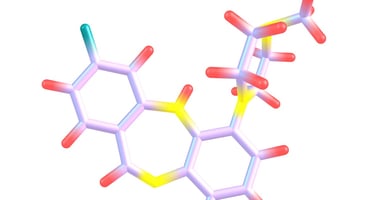Many Patients With Schizophrenia Benefit From Guided Antipsychotic Tapering Program

More than 60% of individuals with schizophrenia who underwent guided antipsychotic tapering at a specialty clinic remained stable for a year while reporting better overall functioning, reports a study in Psychological Medicine. Among individuals who relapsed while tapering medication, most were able to quickly restabilize.
“While [our] sample size is relatively small and the observation period relatively short, we postulate that the gradual reduction of antipsychotics in a safe and supportive environment can mitigate the risk of the severe adverse events normally associated with discontinuation of antipsychotics when done abruptly and/or independently,” wrote Alexander Nøstdal, M.D., and colleagues at the University of Copenhagen.
The researchers examined the outcomes of 88 patients with schizophrenia who were referred to an outpatient clinic in the Copenhagen suburb of Glostrup that specializes in gradual antipsychotic tapering. The clinic’s physicians work with patients to develop a six-month tapering plan that aims for a gradual reduction in antipsychotic dose every four weeks until an optimal balance of functioning and side effects is reached. In addition to monthly physician consultations, the patients maintained weekly contact with clinic staff.
The average starting antipsychotic dose among participants was slightly over 400 mg of chlorpromazine equivalent, which dropped to 250 mg by six months and remained at that level at 12 months; nine patients managed to completely discontinue their antipsychotic.
Overall, 27% of the tapering patients experienced a relapse of their schizophrenia symptoms after six months, while 37% experienced relapse at 12 months. About one-third of the patients who relapsed required hospitalization, but others managed to restabilize, often at a lower antipsychotic dose than where they started. There were also no reports of suicidal or violent behavior in any participants.
Of the 63% of patients who remained stable across 12 months, their overall functioning as rated by the Global Assessment of Functioning (GAF) scale—with a range 1 to 100—rose from 46.6 to 50.9.
“Although the average improvement of 4 points on the GAF scale is relatively small and may perhaps seem insignificant to an observer, it may still be important for the patients,” Nøstdal and colleagues wrote. “Being less socially isolated may for some patients lead to further improvement over time. In addition, these patients experienced a reduction in adverse effects, which for most patients were the main motivational factor for seeking out the tapering clinic.”
For related information, see the Psychiatric Services article by Nøstdal and colleagues “Motivations for and Experiences With Antipsychotic Tapering Among Patients With Schizophrenia Seeking Guided Dose Reduction.”
(Image: Getty Images/iStock/Ngampol Thongsai)
Don't miss out! To learn about newly posted articles in Psychiatric News, please sign up here.




